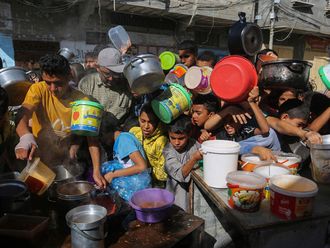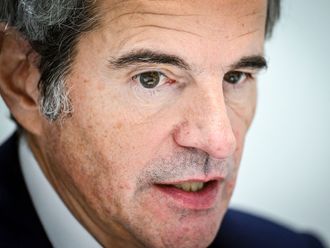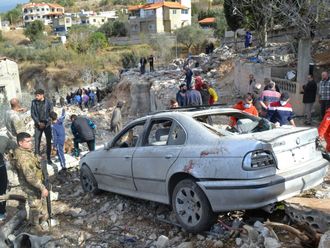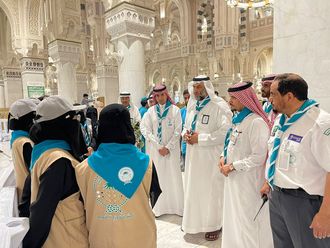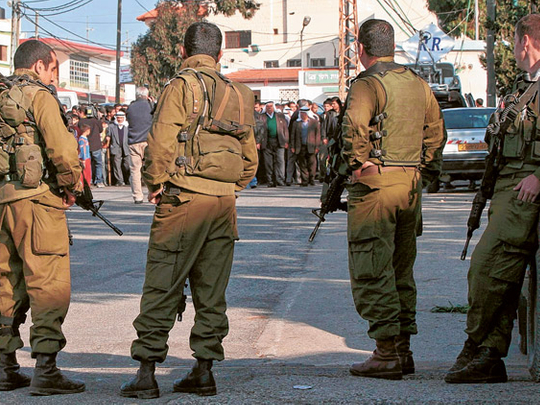
United Nations: The UN's special coordinator for Lebanon says he plans to visit Israel next week with the UN commander in southern Lebanon to discuss Israel's decision "in principle" to pull troops out of the northern half of a village that straddles the border.
Michael Williams welcomed the announcement from Prime Minister Benjamin Netanyahu's office that senior government ministers had approved a UN proposal to withdraw from northern Ghajar "in principle," but he noted that the decision still needs full Cabinet approval.
Williams said on Thursday that he and Major-General Alberto Asarta Cueva, who heads the UN peacekeeping force in southern Lebanon known as UNIFIL, will visit Israel early this week, subject to Israel's agreement, to follow-up on the announcement.
"I feel confident that we will be able to agree with the Israeli government on the withdrawal of their forces from northern Ghajar," he said.
Important step
Williams told reporters after briefing the Security Council that the withdrawal would be "an important step" toward fully implementing the UN resolution that ended Israel's 2006 war with Hezbollah militants in Lebanon.
"The UN would then seek to continue to work closely with the parties in a process to resolve the permanent status of Ghajar as soon as the withdrawal is complete," Williams said.
The village is home to 2,200 people and lies in a strategic corner where the boundaries of Syria, Israel and Lebanon are in dispute. More than 1,500 residents live in the northern half.
Israel captured all of Ghajar from Syria in 1967 when it took the Golan Heights. After the Israeli military ended an 18-year occupation of southern Lebanon in 2000, UN surveyors split Ghajar between Lebanon and the Israeli-controlled Golan, but Israel reoccupied the northern half during the Israeli-Hezbollah war four years ago. Under the truce that ended the fighting, Israel agreed to withdraw, but it wanted to clinch an arrangement that would keep the Iranian-backed Hezbollah from entering the village.
Israeli officials said the village would not be divided after the withdrawal, but that did not allay residents' fears of being left stranded in Lebanon, if not by Israel then by the UN peacekeepers.
Williams said he was sure arrangements would be made to protect the villagers, with UN peacekeepers on the outer perimeter in the north.
Everyday activities
"I'm sure that the villagers would be able to go about their everyday activities including education and so on as they've been able to do in the past," he said.
Williams briefed the council on Secretary-General Ban Ki-moon's recent report which warned that political tensions in Lebanon have increased markedly ahead of expected indictments by the UN-backed tribunal set up to prosecute the assassins of former Prime Minister Rafik Hariri.
Asked about the indictments, Williams said: "I, like others, expect to see indictments from the special tribunal in the coming months."


